Arthur Whetsel
American jazz trumpet player (born February 22, 1905 in Punta Gorda, Florida - died January 1, 1940 in New York City, New York) After losing his father at age 1, Whetsel grew up in Los Angeles, CA. At age 8, he took up the cornet. When he was a teenager, his family moved to Washington, DC, where he performed with local bands, eventually joining [a=Duke Ellington And His Washingtonians]. He played on the band's first test recording for Victor, which they made under the name Snowden's Novelty Orchestra on July 26, 1923 in New York City. He left the band later that same year, however, to study medicine. Whetsel returned to Ellington in 1928, while the band was under contract at the "Cotton Club" in Harlem. This allowed him to perform on some of the most iconic recordings of the Ellington Band (e.g., "Black Beauty," "Black And Tan Fantasy," and "Mood Indigo"). In 1938, Whetsel began displaying erratic behavior during a concert and needed to be replaced with trumpeter [a=Wallace Jones]. Diagnosed with an inoperable brain tumor, he spent the last two years of his life confined at the Central Islip State Hospital in Suffolk County, New York. Whetsel is praised for his trumpet's "broad, open tone of ample depth and sonority" and "the elegant, soft quality of his muted play". He used a pair of wooden "Solotone" conical mutes, one glued inside the other, to achieve his trademark "haunting, ethereal sound when muted" (Steven Lasker). Whetsel was featured with [a=Duke Ellington] in the 1929 short film "Black And Tan Fantasy".
Releases
-
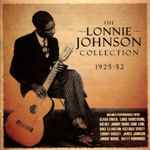 The Lonnie Johnson Collection, 1925-52
The Lonnie Johnson Collection, 1925-52
-
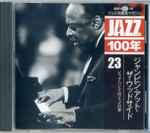 Jazz 100年 23 ジャンピン・アット・ザ・ウッド・サイド~ビッグ・バンドはジャズの華
Jazz 100年 23 ジャンピン・アット・ザ・ウッド・サイド~ビッグ・バンドはジャズの華
-
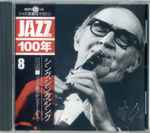 Jazz 100年 8 シング、シング、シング~ジャズ史①ジャズ誕生からスイングまで
Jazz 100年 8 シング、シング、シング~ジャズ史①ジャズ誕生からスイングまで
-
 Jazz Instruments
Jazz Instruments
-
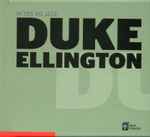 Duke Ellington
Duke Ellington
-
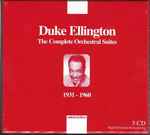 The Complete Orchestral Suites
The Complete Orchestral Suites
-
 Classic Jazz Archive
Classic Jazz Archive
-
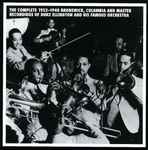 The Complete 1932-1940 Brunswick, Columbia And Master Recordings Of Duke Ellington And His Famous Orchestra
The Complete 1932-1940 Brunswick, Columbia And Master Recordings Of Duke Ellington And His Famous Orchestra
-
 50 Singing Ladies - Une Anthologie 1933 / 1959
50 Singing Ladies - Une Anthologie 1933 / 1959
-
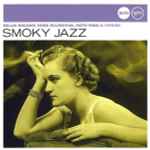 Smoky Jazz
Smoky Jazz
-
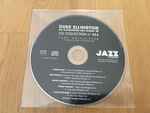 Les Trompettistes Des Années 20
Les Trompettistes Des Années 20
-
 The War: A Ken Burns Film
The War: A Ken Burns Film
-
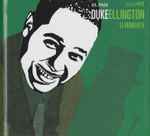 El Momento
El Momento
-
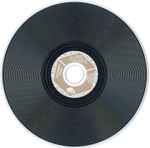 Jazz Im New York Der Wilden Zwanziger
Jazz Im New York Der Wilden Zwanziger
-
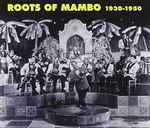 Roots Of Mambo 1930-1950
Roots Of Mambo 1930-1950
-
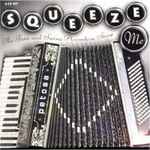 Squeeze Me • The Jazz And Swing Accordion Story
Squeeze Me • The Jazz And Swing Accordion Story
-
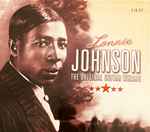 The Original Guitar Wizard
The Original Guitar Wizard
-
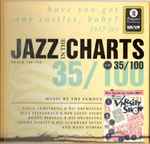 Jazz In The Charts 35/100 - Have You Got Any Castles, Baby? (1937 (6))
Jazz In The Charts 35/100 - Have You Got Any Castles, Baby? (1937 (6))
-
 Jazz In The Charts 28/100 - A Fine Romance (1936 (5))
Jazz In The Charts 28/100 - A Fine Romance (1936 (5))
-
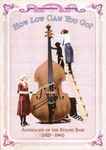 How Low Can You Go? : Anthology Of The String Bass (1925-1941)
How Low Can You Go? : Anthology Of The String Bass (1925-1941)
-
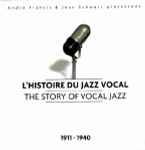 L'Histoire Du Jazz Vocal - The Story Of Vocal Jazz: Part 1 (1911 - 1940)
L'Histoire Du Jazz Vocal - The Story Of Vocal Jazz: Part 1 (1911 - 1940)
-
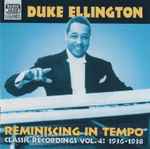 Reminiscing In Tempo - Classic Recordings Vol.3: 1932-1935
Reminiscing In Tempo - Classic Recordings Vol.3: 1932-1935
-
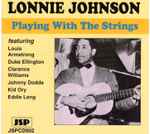 Playing With The Strings
Playing With The Strings
-
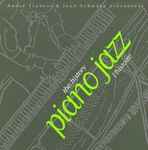 Piano Jazz (The History/L'Histoire)
Piano Jazz (The History/L'Histoire)
-
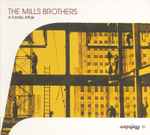 A Family Affair
A Family Affair
-
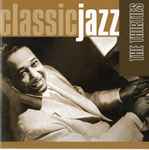 Classic Jazz: The Thirties
Classic Jazz: The Thirties
-
 Take It Easy
Take It Easy
-
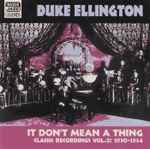 It Don't Mean A Thing - Classic Recordings Vol.2: 1930-1934
It Don't Mean A Thing - Classic Recordings Vol.2: 1930-1934
-
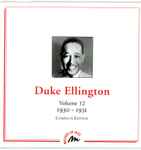 Volume 12 - 1930-1931 - Complete Edition
Volume 12 - 1930-1931 - Complete Edition
-
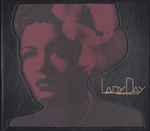 Lady Day (The Complete Billie Holiday On Columbia) (1933-1944)
Lady Day (The Complete Billie Holiday On Columbia) (1933-1944)
-
 1928
1928
-
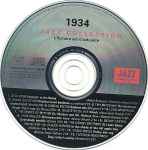 1934
1934
-
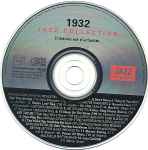 1932
1932
-
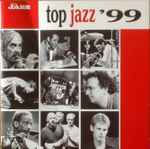 Top Jazz '99
Top Jazz '99
-
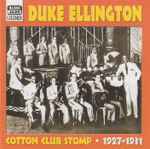 Cotton Club Stomp - 1927-1931
Cotton Club Stomp - 1927-1931
-
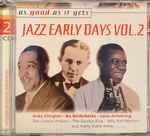 Jazz Early Days Vol.2
Jazz Early Days Vol.2
-
 The Best Of Ken Burns Jazz
The Best Of Ken Burns Jazz
-
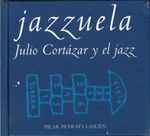 Jazzuela - Julio Cortázar Y El Jazz
Jazzuela - Julio Cortázar Y El Jazz
-
 Ken Burns Jazz (The Story Of America's Music)
Ken Burns Jazz (The Story Of America's Music)
-
 Duke Ellington For Solo Guitar
Duke Ellington For Solo Guitar
-
 Volume 11 - 1930 - Complete Edition
Volume 11 - 1930 - Complete Edition
-
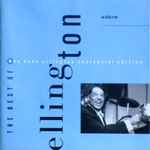 The Best Of The Duke Ellington Centennial Edition: The Complete RCA Victor Recordings (1927-1973)
The Best Of The Duke Ellington Centennial Edition: The Complete RCA Victor Recordings (1927-1973)
-
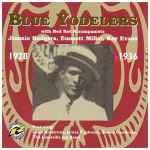 Blue Yodelers - With Red Hot Accompanists, 1928-1936
Blue Yodelers - With Red Hot Accompanists, 1928-1936
-
 A Century Of Glory
A Century Of Glory
-
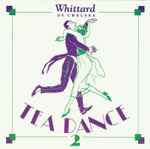 Tea Dance 2
Tea Dance 2
-
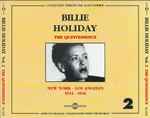 Vol. 2 - New York - Los Angeles - 1934 - 1946
Vol. 2 - New York - Los Angeles - 1934 - 1946
-
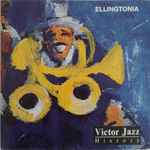 Ellingtonia
Ellingtonia
-
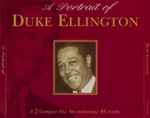 A Portrait Of Duke Ellington
A Portrait Of Duke Ellington
-
 Rexatious
Rexatious
-
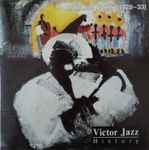 Harlem Jazz (1928-33)
Harlem Jazz (1928-33)
 The Lonnie Johnson Collection, 1925-52
The Lonnie Johnson Collection, 1925-52
 Jazz 100年 23 ジャンピン・アット・ザ・ウッド・サイド~ビッグ・バンドはジャズの華
Jazz 100年 23 ジャンピン・アット・ザ・ウッド・サイド~ビッグ・バンドはジャズの華
 Jazz 100年 8 シング、シング、シング~ジャズ史①ジャズ誕生からスイングまで
Jazz 100年 8 シング、シング、シング~ジャズ史①ジャズ誕生からスイングまで
 Jazz Instruments
Jazz Instruments
 Duke Ellington
Duke Ellington
 The Complete Orchestral Suites
The Complete Orchestral Suites
 Classic Jazz Archive
Classic Jazz Archive
 The Complete 1932-1940 Brunswick, Columbia And Master Recordings Of Duke Ellington And His Famous Orchestra
The Complete 1932-1940 Brunswick, Columbia And Master Recordings Of Duke Ellington And His Famous Orchestra
 50 Singing Ladies - Une Anthologie 1933 / 1959
50 Singing Ladies - Une Anthologie 1933 / 1959
 Smoky Jazz
Smoky Jazz
 Les Trompettistes Des Années 20
Les Trompettistes Des Années 20
 The War: A Ken Burns Film
The War: A Ken Burns Film
 El Momento
El Momento
 Jazz Im New York Der Wilden Zwanziger
Jazz Im New York Der Wilden Zwanziger
 Roots Of Mambo 1930-1950
Roots Of Mambo 1930-1950
 Squeeze Me • The Jazz And Swing Accordion Story
Squeeze Me • The Jazz And Swing Accordion Story
 The Original Guitar Wizard
The Original Guitar Wizard
 Jazz In The Charts 35/100 - Have You Got Any Castles, Baby? (1937 (6))
Jazz In The Charts 35/100 - Have You Got Any Castles, Baby? (1937 (6))
 Jazz In The Charts 28/100 - A Fine Romance (1936 (5))
Jazz In The Charts 28/100 - A Fine Romance (1936 (5))
 How Low Can You Go? : Anthology Of The String Bass (1925-1941)
How Low Can You Go? : Anthology Of The String Bass (1925-1941)
 L'Histoire Du Jazz Vocal - The Story Of Vocal Jazz: Part 1 (1911 - 1940)
L'Histoire Du Jazz Vocal - The Story Of Vocal Jazz: Part 1 (1911 - 1940)
 Reminiscing In Tempo - Classic Recordings Vol.3: 1932-1935
Reminiscing In Tempo - Classic Recordings Vol.3: 1932-1935
 Playing With The Strings
Playing With The Strings
 Piano Jazz (The History/L'Histoire)
Piano Jazz (The History/L'Histoire)
 A Family Affair
A Family Affair
 Classic Jazz: The Thirties
Classic Jazz: The Thirties
 Take It Easy
Take It Easy
 It Don't Mean A Thing - Classic Recordings Vol.2: 1930-1934
It Don't Mean A Thing - Classic Recordings Vol.2: 1930-1934
 Volume 12 - 1930-1931 - Complete Edition
Volume 12 - 1930-1931 - Complete Edition
 Lady Day (The Complete Billie Holiday On Columbia) (1933-1944)
Lady Day (The Complete Billie Holiday On Columbia) (1933-1944)
 1928
1928
 1934
1934
 1932
1932
 Top Jazz '99
Top Jazz '99
 Cotton Club Stomp - 1927-1931
Cotton Club Stomp - 1927-1931
 Jazz Early Days Vol.2
Jazz Early Days Vol.2
 The Best Of Ken Burns Jazz
The Best Of Ken Burns Jazz
 Jazzuela - Julio Cortázar Y El Jazz
Jazzuela - Julio Cortázar Y El Jazz
 Ken Burns Jazz (The Story Of America's Music)
Ken Burns Jazz (The Story Of America's Music)
 Duke Ellington For Solo Guitar
Duke Ellington For Solo Guitar
 Volume 11 - 1930 - Complete Edition
Volume 11 - 1930 - Complete Edition
 The Best Of The Duke Ellington Centennial Edition: The Complete RCA Victor Recordings (1927-1973)
The Best Of The Duke Ellington Centennial Edition: The Complete RCA Victor Recordings (1927-1973)
 Blue Yodelers - With Red Hot Accompanists, 1928-1936
Blue Yodelers - With Red Hot Accompanists, 1928-1936
 A Century Of Glory
A Century Of Glory
 Tea Dance 2
Tea Dance 2
 Vol. 2 - New York - Los Angeles - 1934 - 1946
Vol. 2 - New York - Los Angeles - 1934 - 1946
 Ellingtonia
Ellingtonia
 A Portrait Of Duke Ellington
A Portrait Of Duke Ellington
 Rexatious
Rexatious
 Harlem Jazz (1928-33)
Harlem Jazz (1928-33)